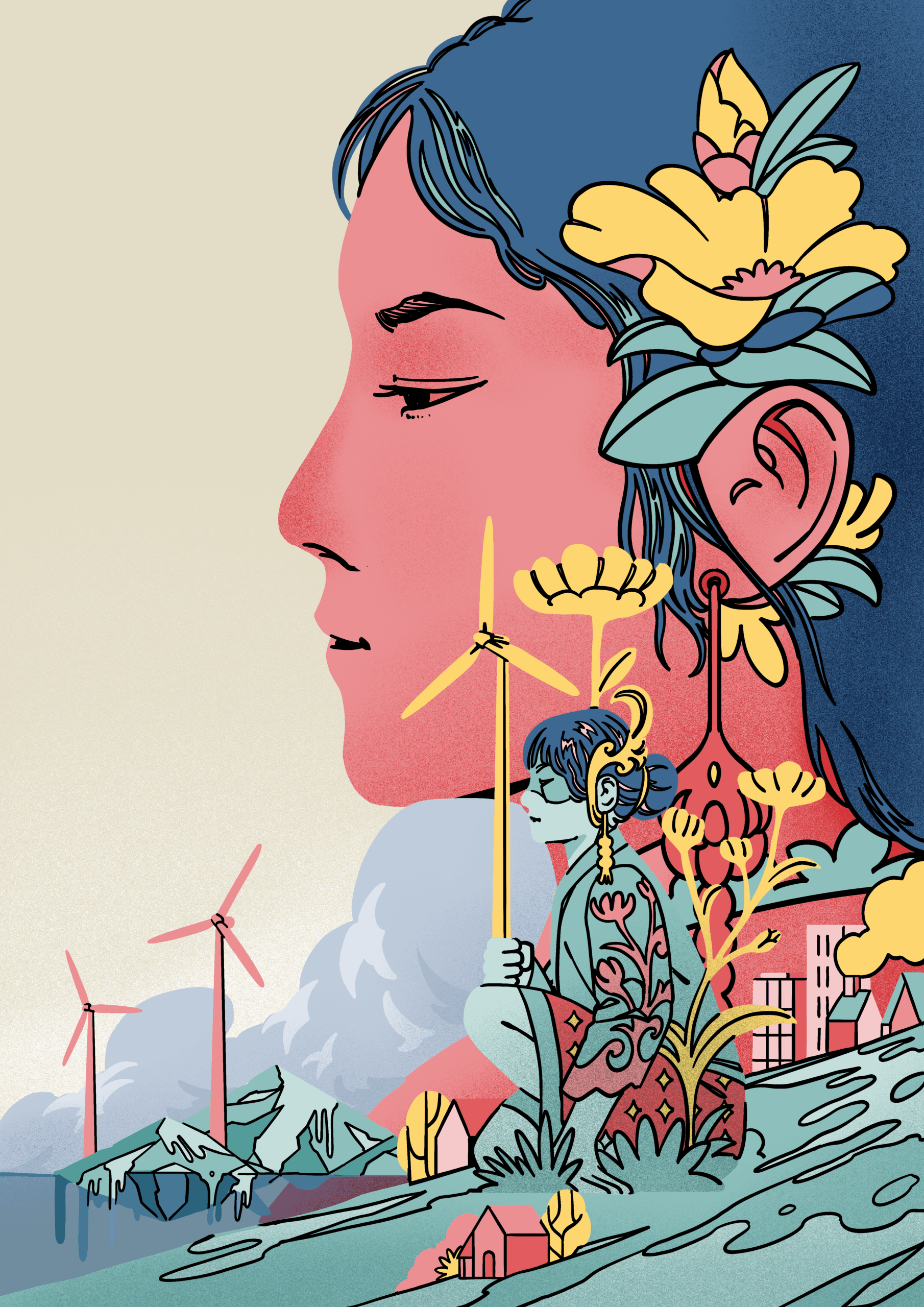
Uncategorized | May 23, 2025
Humanis Way: Gender & Climate Justice Strategic Guidelines
Yayasan Humanis dan Inovasi Sosial
Climate change is fundamentally unjust. It is rooted in colonialism and an extractivist economic model that continues to distribute wealth and power unequally. At the same time, it disproportionately affects those least responsible, exacerbating inequalities globally, within societies, and across generations. People, communities, and countries that face structural inequalities and long histories of oppression are on the frontlines of the climate crisis, despite having contributed least to causing it.
In particular, climate change disproportionately impacts women and girls—in all their diversity—who are least acknowledged in climate responses and are often marginalized in decision-making. They are most at risk of losing their land, livelihoods, and safety to climate impacts, face the negative impact of ‘false solutions’, and are less likely to benefit from climate investments and initiatives. The overlooked connection between care work and climate change further compounds this situation. Women globally bear the brunt of unpaid care work, shouldering 76% of this responsibility. However, both the impacts of climate change and the responses to the climate crisis are intensifying this burden, deepening existing gender inequalities.
This is a shared crisis globally, and in Indonesia and Southeast Asia regionally, where Yayasan Humanis Dan Inovasi Sosial (Humanis) works. Based on this understanding, our gender and climate justice vision is that: Climate action is centered on justice, equity and human rights, grounded in the priorities and agency of women and girls—in all their diversity—and addresses structural inequalities in the care economy and social systems to drive transformative, sustainable solutions and advance gender equality.
In this context, Humanis has developed this document outlining its strategic guidelines to effectively address gender and climate injustices across all aspects of current and future work. These guidelines will be applied and embedded in project design and implementation, in advocacy with decision-makers, and in relationships and collaborations with partners and funders.
This document outlines the strategic guidelines, including examples and case studies to illustrate them in practice. It results from a collaborative process, drawing on experiences and inputs from rightsholder groups, especially women and girls, and their organizations in Indonesia and Southeast Asia. In addition, it will form the basis for co-creating an Indonesia-focused gender and climate justice Theory of Change, working closely with partners and stakeholders.

